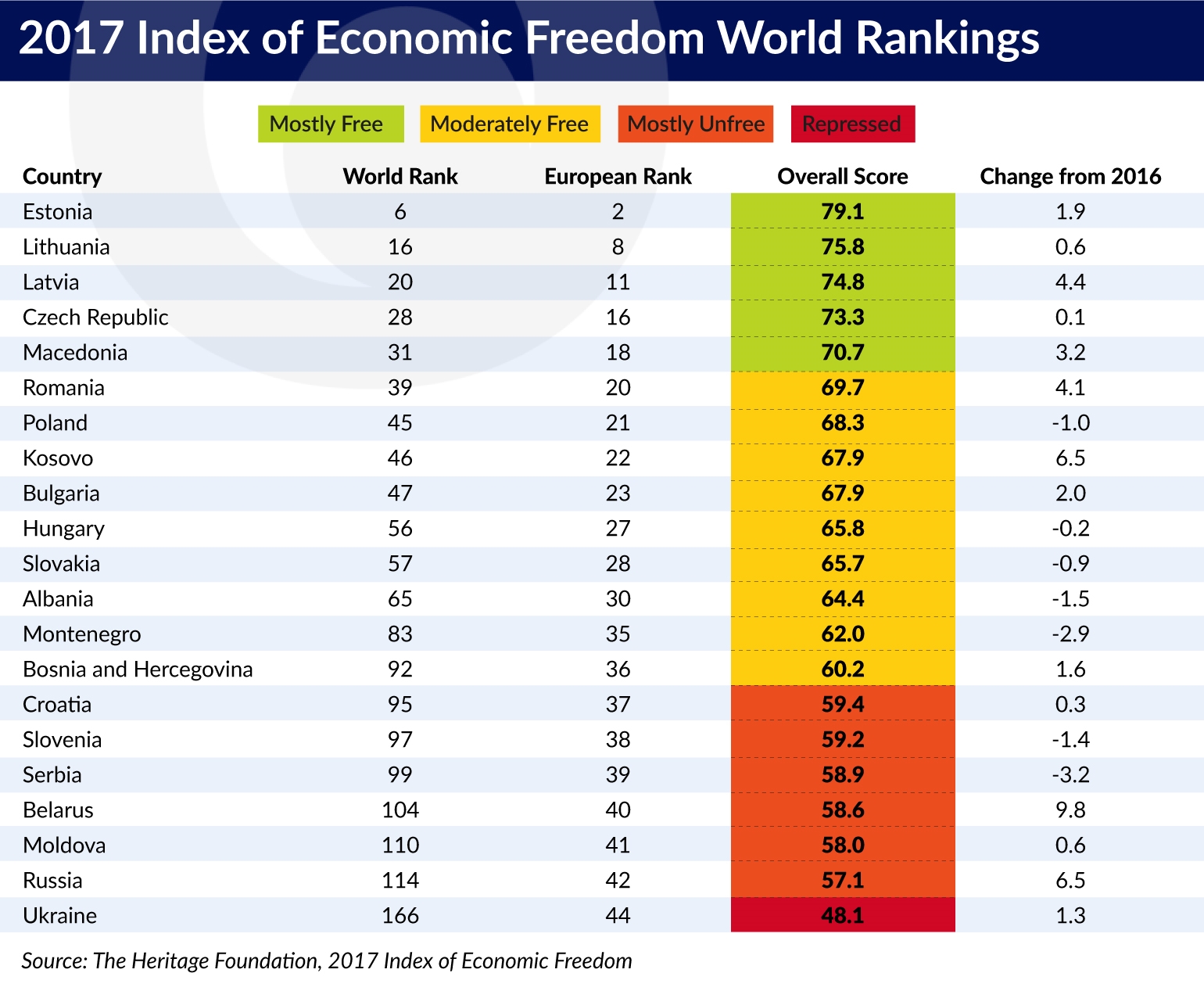
Scientists eventually came to conclude that Einstein’s equations were correct and Newton’s incorrect. To give just one example from the early 20th Century, Einstein’s exotic theory of general relativity challenged the long-standing and highly accurate mathematical system of celestial mechanics built by Newton. This is certainly not the first time people have disagreed about how the world works. Ultimately, either economic freedom delivers the goods or it doesn’t. One of these thinkers, if not both, is wrong about how free-market capitalism works.
Economic freedome free#
Who was right? Smith painted a fairly rosy, if not utopic, picture of free markets yielding ever greater prosperity to the masses, while Marx depicted a dystopic Hunger Games future under capitalism.

Ultimately, according to Marx, the cycles of capitalism will create such unbearable conditions for the working class that they will rise up and violently overthrow their capitalist overlords, first ushering in the dictatorship of the proletariat and then eventually a communist system characterized by the famous phrase, “From each according to his ability, to each according to his needs.” Furthermore, Marx’s analysis suggested that capitalism would cycle from profit to loss with each cycle resulting in greater monopoly power, which in turn would squeeze the working class even further. The Marxian “yeah but” was that most of those riches would accrue to the elite owners of capital, the bourgeoisie, while the working class would merely subsist on low wages. Marx’s great work, Capital: A Critique of Political Economy, first published in 1867 nearly a hundred years after Smith’s, argued that capitalism was indeed a very productive system that would yield great riches. It might be surprising for readers to discover that Smith’s intellectual enemy, Karl Marx, largely agreed with Smith’s assessment, to a point. Smith is rightly considered the father not only of economics but also free-market economics. In order for this specialization to take hold, however, Smith understood that we needed an economic and political system that allowed people the freedom to specialize and trade-he called it “a system of natural liberty.” Today, we would call it laissez-faire, private enterprise, free trade, economic freedom, or some such term. People get rich by specializing in producing those things they are good at and then trading with others who themselves have specialized in that which they are good at. In Smith’s account, the division of labor is the source of prosperity for the great masses of people.

Smith’s 1776 magnum opus, An Inquiry into the Nature and Causes of the Wealth of Nations, was one of the first attempts to answer this question. The central question in economics, at least since the time of Adam Smith, has been to explain why some people become rich while others don’t. What works at the international level also works at the state and local level, and an emerging area. While economic inequality is a deep concern, economic freedom is not the likely cause of excessive inequality. Even with income inequality, the share of total income going to the poorest tenth of the population is about the same in countries with high economic freedom as it is in countries with low economic freedom.

Other measures of human well-being are also better in countries with more economic freedom, such as poverty rates, political rights, civil rights, gender inequality, live expectancy at birth, infant mortality rates, and life satisfaction surveys.

On average, people living in countries with higher economic freedom enjoy much greater levels of income. In reviewing over 400 studies that use the EFW data, the results are clear. Who was right? To help answer, this brief next explains how the annual Economic Freedom of the World (EFW) report measures economic freedom and how it relates to economic measures of human prosperity. But according to Marx, capitalism will lead instead to inequality, revolution, and ultimately authoritarianism. In Smith’s view, prosperity happens when the economy is built on the principle of natural liberty. This issue brief begins with the ideas of two of history’s top economists, Adam Smith and Karl Marx. Economists have debated the sources of human prosperity for centuries.


 0 kommentar(er)
0 kommentar(er)
